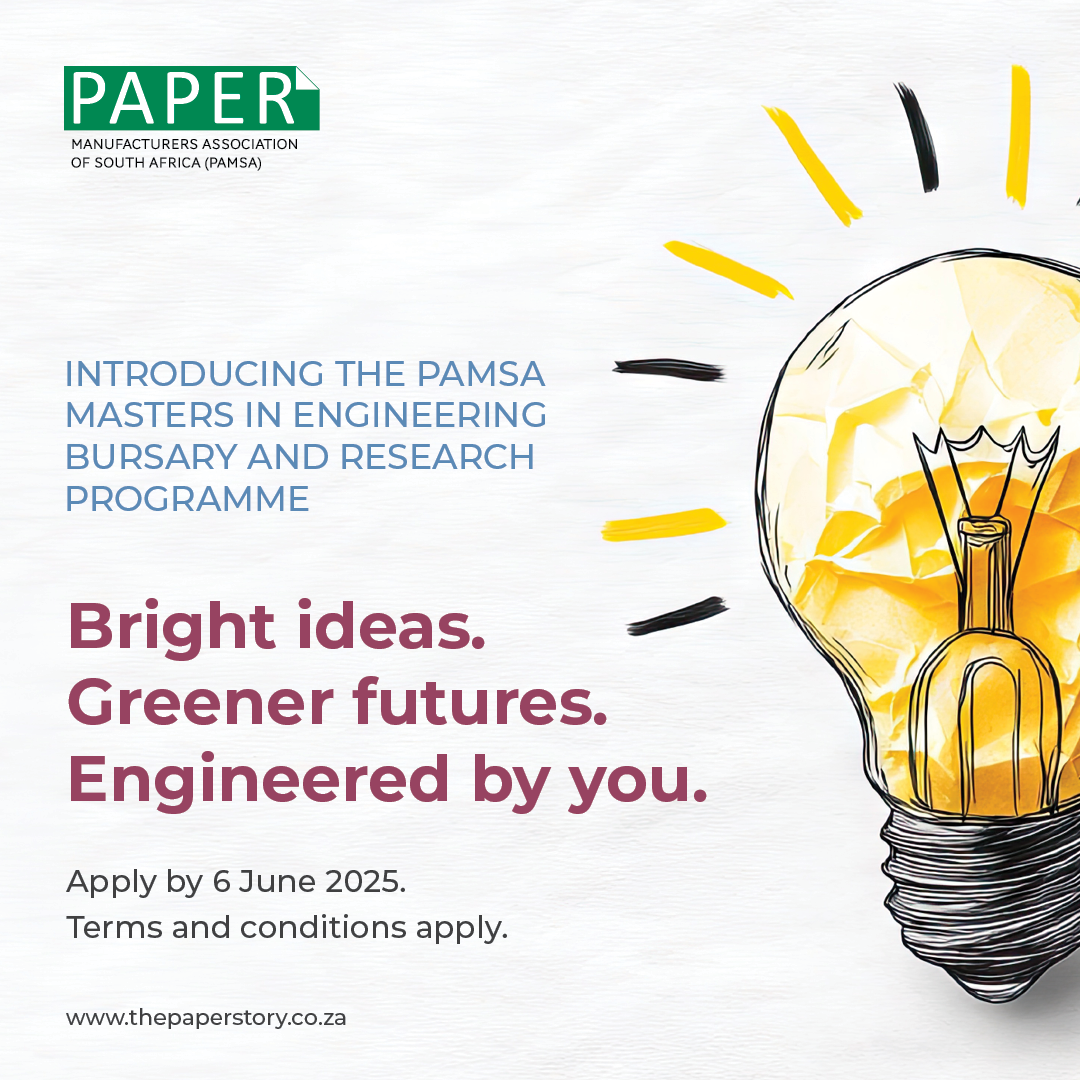Pulp and paper industry invites chemical engineering students to contribute to green innovation
April 10, 2025
Bright ideas. Greener futures. Engineered by you. This is the call from the Paper Manufacturers Association of South Africa (PAMSA) as it invites final-year students and recent graduates in the field of BSc and BEng Chemical Engineering to apply for its 2026-2027 Master’s in Engineering Bursary and Research Programme.
A select number of eligible applicants will receive a two-year bursary valued at R320,000, covering full-time Master’s study at participating South African universities: Stellenbosch University, University of Witwatersrand, University of the North-West and University of Pretoria.
“This is a unique opportunity for students to become part of a generation of chemical and process engineers that help shape a circular bioeconomy,” says Jane Molony, PAMSA’s executive director. “The programme has been running for more than 15 years, and has been a career springboard for many young engineers.”
The pulp and paper industry is centred on the use of renewable natural resources – primarily wood fibre sourced from sustainably managed plantations – to produce a wide range of essential products. These include printing and writing paper, paperboard and packaging, and tissue products, all commonly manufactured by South African mills. Many locally produced packaging and tissue items also incorporate recycled paper fibre, contributing further to a circular economy.
One of PAMSA’s member companies produces dissolving wood pulp, a versatile material used in the manufacture of textiles, sponges, as well as nanocellulose and microcrystalline cellulose, which are added to food products, pharmaceuticals, and cosmetics.
Find worth in waste
“Perhaps one of the most exciting aspects of the programme is how our students have found innovative ways to extract value from mill process waste streams, converting them into useful and sustainable products,” notes Molony.
Over the years, students have explored a wide range of projects – from improving water and energy efficiency in paper mills to optimising production processes and producing bio-ethanol from paper sludge.
Molony adds, “The versatile potential of lignin, a natural polymer found in plant cell walls that provides strength and rigidity, continues to fascinate our students. Due to its abundance, renewability, and rich chemical structure, it can serve as a renewable alternative to fossil-based materials.”
By extracting lignin from the likes of black liquor, a dark, syrupy liquid that’s left over after wood is cooked to make pulp for paper, students have found various applications for the energy-rich organic material. This can be used as a substitute for bitumen for asphalt production, a soil conditioner to boost carbon sequestration, an additive to slow-release fertilisers and an adsorbent for water purification.
“It’s this sort of thinking and curiosity that makes this programme so valuable for PAMSA members and the South African circular bioeconomy,” concludes Molony.
Application deadlines:
- Early bird deadline: 6 June 2025 (Early applicants will be given priority consideration)
- Final deadline: Friday, 27 June 2025
Learn more or apply: https://thepaperstory.co.za/action-areas/masters-of-engineering-bursary-programme/
Terms, conditions and eligibility criteria apply.




